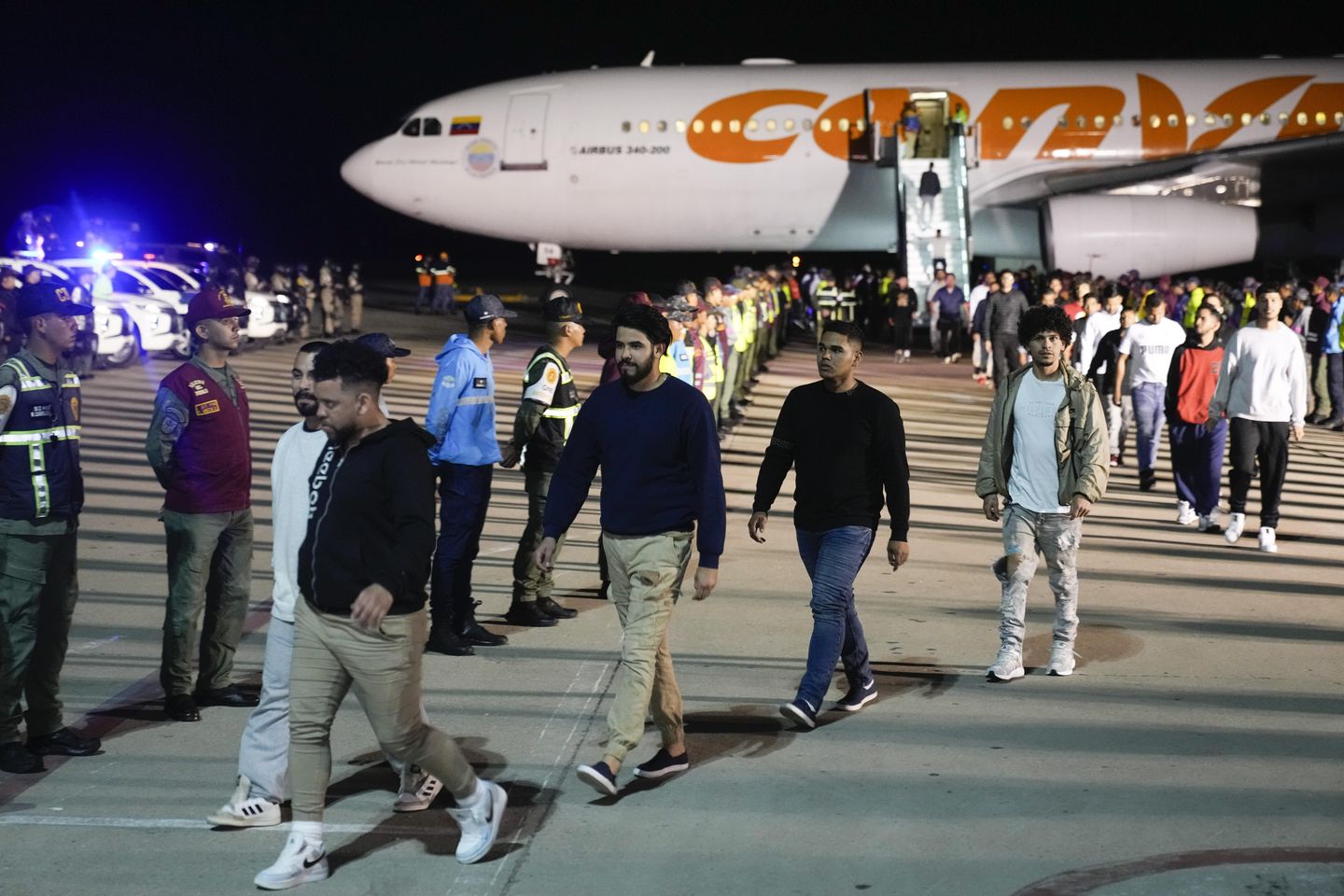
President Trump’s lawyers have asked the Supreme Court to allow him to begin deporting Venezuelan gang suspects he’s deemed terrorists and “alien enemies,” saying lower court blockades are interfering with core presidential powers.
Acting Solicitor General Sarah Harris asked the justices to put a hold on a lower court’s temporary restraining order and give Mr. Trump room to operate as he sees fit while the case develops more fully.
Otherwise, she said, dangerous members of Tren de Aragua, a Venezuelan gang that infiltrated the U.S. over the last few years, will remain here, threatening public safety. And Mr. Trump’s powers to conduct foreign policy and run national security will be trampled on by judges issuing temporary restraining orders.
“This case presents fundamental questions about who decides how to conduct sensitive national-security-related operations in this country — the president, through Article II, or the judiciary, through TROs,” Ms. Harris told the high court. “The Constitution supplies a clear answer: the president. The republic cannot afford a different choice.”
U.S. District Judge James Boasberg issued the restraining order on March 15, just as Mr. Trump was in the process of sending planeloads of Venezuelans he said were part of TdA to a prison in El Salvador, where the U.S. is paying for them to be held.
Mr. Trump invoked the Alien Enemies Act, a 1798 law, to get around the usual immigration law and speed the deportations. He has deemed TdA a terrorist organization involved in an “invasion” or “incursion” into the U.S., and thus subject to the law.
Lawyers for the TdA suspects rushed to court to try to block the removals, winning the restraining order from Judge Boasberg.
Three flights took off anyway, with the government saying two of them were already outside of U.S. airspace and the third included normal deportees, not alien enemies.
Judge Boasberg is now trying to figure out if he thinks any of those flights defied his orders.
Ms. Harris, in her argument to the justices Friday, said courts should try to peek behind the president’s decisions on national security.
She said the only role for courts is what’s known as a “habeas” challenge, a powerful but narrow type of lawsuit that requires the government to justify its arrest and detention decisions.
The case Ms. Harris brought to the justices is instead a class-action lawsuit challenging Mr. Trump’s Alien Enemies Act powers, she said.
Chief Justice John G. Roberts Jr. gave the lawyers for the Venezuelans until Tuesday to file their response to Ms. Harris.
The American Civil Liberties Union and Democracy Forward, groups that are backing the Venezuelans, said they’ll ask the justices to keep the lower court blockade in place.
“The president is not king. He cannot deport people without due process, and he cannot invoke wartime powers — used only three times in history — during peacetime without accountability,” said Skye Perryman, president and CEO of Democracy Forward.

















